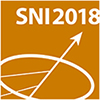Speaker
Description
Dynamically resolved, or better known time-resolved, structural studies of proteins rely on specific sample environments at both synchrotrons and XFELs due to two main requirements: the continuous delivery of fresh sample to the X-ray beam and the need to trigger the protein activity. The two most widely used methods for protein triggering are the diffusion of actuators by rapid mixing and light activation using laser pulses.
Within collaborative efforts between the Trebbin group and other groups at the University of Hamburg, DESY and ESRF, we have developed sample environments and methods for these complex studies. Specifically, we have recently developed different X-ray compatible devices for serial synchrotron crystallography (SSX) data collection in flow with mixing for which I will present an example using 3D-printed microfluidic devices at beamline ID303-A (ESRF). These devices are capable of delivering ligands to microcrystalline crystal slurries to generate metastable protein species which can then be studied by X-ray diffraction.
These versatile methods can be tailored to the requirements of the protein target characteristics such as time scales of reaction and sample. Therefore, the development of general and user-friendly sample environments is an important step in making these experiments more widely available.

